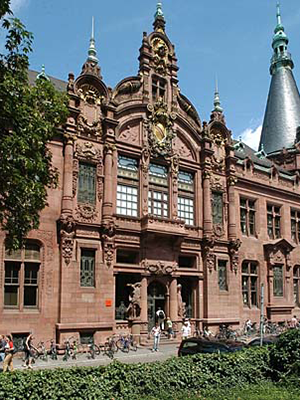The present tense is used to talk about events that are currently happening. When translating the present tense from German into English, there are many possible options as to how to interpret what is being said. For example, Ich lese can be translated into I read, I am reading, or I do read.
In order to form the present tense, we take the infinitive of the verb, remove the ending (-en), and add the appropriate ending for the subject/object being addressed to the stem. The table below shows how to form verbs in the present for each subject:
| Subject | Verb (gehen) |
|---|---|
| ich | geh-e |
| du | geh-st |
| er/sie/es | geh-t |
| wir | geh-en |
| ihr | geh-t |
| sie | geh-en |
The conjugations written in the above table are the endings for all regular verbs. Of course, there are exceptions to the rule, and many irregular verbs exist that don’t follow the same conjugations. Two of the most important verbs, haben (to have) and sein (to be), are irregular, and their conjugations must be memorized, which are written below:
| Subject | Verb (haben) |
|---|---|
| ich | habe |
| du | hast |
| er/sie/es | hat |
| wir | haben |
| ihr | habt |
| sie | haben |
| Subject | Verb (sein) |
|---|---|
| ich | bin |
| du | bist |
| er/sie/es | ist |
| wir | sind |
| ihr | seid |
| sie | sind |
Achtung!
Many verbs contain seperable prefixes, in which the prefix is separated from the conjugated verb and placed at the end of the main clause. The prefixes ab-, an-, auf-, aus-, ein-, mit-, vor-, and zusammen- are separable.
Ich kaufe Lebensmittel ein. (infinitive: einkaufen)
Er zieht sich an. (infinitive: anziehen)
Übung: Introductions
Read below about Kayta, her family, and what she likes to do. Fill in each blank with the appropriately conjugated verb in the present tense.
Hallo! Ich heiße_______ Katya und ich bin_______ 18 Jahre alt (heißen; sein). Ich habe______ eine Mutter, einen Vater und zwei Brüder (haben). Sie heißen_______ Peter und Jakob (heißen). Peter ist______ acht Jahre alt und Jakob ist_____ 10 Jahre alt (sein). Ich komme______ aus München aber meine Familie und ich wohnen______ jetzt in Heidelberg (kommen; wohnen). Ich besuche_______ die Heidelberger Uni und ich studiere_______ Naturwissenschaft (besuchen; studieren). Ich will______ eine Naturwissenschaftlerin sein_______ (wollen; sein).
Wenn ich Freizeit habe______, treffe______ ich gerne meine Freunde (haben; treffen). Wir gehen______ oft ins Kino und manchmal gehen______ wir zu einem Restaurant, um etwas zu essen______ (gehen; gehen; essen). Am Wochenende lese______ ich auch gerne Bücher und wenn etwas Interessantes läuft______, sehe______ ich ein bisschen fern______ (lesen; laufen; fernsehen).

